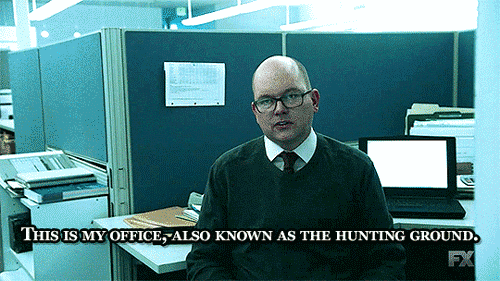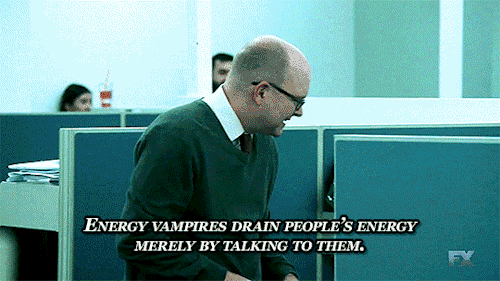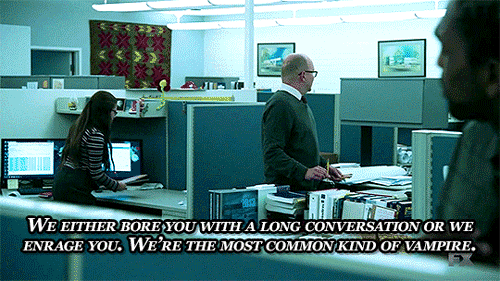Batmiaow - Batmiaow

More Posts from Batmiaow and Others

By consistently presenting nature as an untouched wilderness, many nature documentaries mislead viewers into thinking that there are lots of untouched wildernesses left. I certainly thought there were, before I became an environmental journalist. This misapprehension then prompts people to build their environmental ideas around preserving untouched places and to embrace profoundly antihuman “solutions” to environmental problems, such as kicking indigenous people out of their homeland. In truth, wilderness doesn’t really exist.
In his famous 1995 essay, “The Trouble With Wilderness; or, Getting Back to the Wrong Nature,” the historian William Cronon demolished the concept of wilderness. Cronon argued that European settlers in North America had transformed their inherited idea of “wilderness” as worthless, scary, and unimproved land by reimagining it as a sublime, prehuman Eden. “The myth of the wilderness as ‘virgin’ uninhabited land had always been especially cruel when seen from the perspective of the Indians who had once called that land home,” Cronon wrote. In reality, the Americas had already been thoroughly shaped by the nearly 60 million people who lived there when colonists first arrived. Agriculture and other intensive human use was widespread, covering 10 percent of the Americas’ landmass; human-caused fires maintained grasslands and prairies; hunting, foraging, gathering, and replanting—sometimes in new places—regulated the populations and ranges of dozens of species.
The wilderness myth is simply factually inaccurate, in the Americas and elsewhere. It has also been a real stumbling block for conservation. With wilderness set as the gold standard for nature, any human influence has come to be seen as negative by default. The myth has thus ruled out any approaches to saving nature except walling it off and keeping humans out. Trying to “save the planet” with a wilderness mindset has been all about self-exile. It offers “little hope of discovering what an ethical, sustainable, honorable human place in nature might actually look like,” as Cronon wrote.





I love tumblr. I love that tumblr is the best social media site of 2021.
Every other site has spent the last decade perfecting the art of targeted ads. I am a wallet of flesh and blood which must be stripped bare and profiled and picked apart for the maximally efficient way to squeeze profit from my presence. Every other site will fold and morph itself to a shape of my liking - like a fairy tale trickster stealing memories and taking their mold - to lull me into compliance and loosen my coin purse.
Facebook sees me searching fitness equipment and injects my timeline with athletic wear ads. Reddit profiles the subreddits I follow and eagerly promotes a new coding bootcamp or cloud service at every turn. Google overhears me lamenting over my moving to-do list on voice call and fills in my “how much to tip movers” query before I’ve gotten the third word typed out.
Tumblr never even tried.
They could have. The information is there. The basic infrastructure, presumably, exists. Tumblr can recommend me tags based on tags I follow, blogs based on blogs I follow, even posts that for one reason or another may strike my fancy. Tumblr could be - SHOULD be - funneling this framework into advertising, as the only means that free-to-use social media platforms can turn a profit in our capitalistic hellscape.
They just don’t.
Today I saw an ad for treating Hyperhidrosis - a condition, I think, in which a person sweats too much - and I saw it twice, four posts apart, and it is so incredibly benignly impersonally ineptly untargeted toward me compared to all other pinpoint-aimed advertising that I’m endeared to it. Tumblr knows NOTHING about me. 8 years, 51,000 likes, and tumblr has not learned a THING about me.
Advertisements for a mattress? Shitty mobile game ads that don’t make even the slightest pretense at being anything other than a candy crush rip-off? Choose-your-own adventure games either about Royal Espionage or Choosing The Wrong Dress For Your Date with ZERO in-between.
And then this. This here. The culmination, the crown-jewel of tumblr’s nihilistic non-compliance with the state of social media advertising. Any pretense of capitalistic exchange is abandoned at the gas station by the side of the road. This is not a company. This is not a product. This is not anything that fulfills the contract of consumer and seller.
THIS. THIS IS WHAT TUMBLR HAS TO OFFER INSTEAD.
“Pour vinegar on your bread, fuck you.”
“Put it in the garbage, fuck you.”
“Your wife says you’re a fucking dumbass, fuck you.”
That’s it. That’s the advertisement. You vinegar-breadless cuck. You virgin extraordinaire bereft of bread and garbage can. I am fucking your wife right now in our vinegar-soaked motel bed. She puffs a cigarette which I pulled from the trashcan and we both laugh heartily at her recounts of your immasculine ineptitude. I don’t want your money. I don’t want anything from you. Fuck you.
Amazing. Amazing. What a state of things to ring in 2021. What a great platform we all collectively choose to be on.
(via)
What does your week look like 😂
Your vibe is oddly bitter and reeks of insecurity
sounds like someone needs to go in the water
my city now has a doorbell for the fish in the canals. you would think this is an april fools joke, but it’s very real! 🐟🔔
i love when ppl who constantly use self deprecating humor interact with me, theyre never sure how to react. theyre like "lol well we all hate ourselves anyways" and im like "no, im sexy as hell actually" like oil and water everytime
-
 right-perspective reblogged this · 1 month ago
right-perspective reblogged this · 1 month ago -
 ferndweller reblogged this · 2 months ago
ferndweller reblogged this · 2 months ago -
 thekidwiththehats reblogged this · 4 months ago
thekidwiththehats reblogged this · 4 months ago -
 rosaurasaurio liked this · 5 months ago
rosaurasaurio liked this · 5 months ago -
 circo-atayde-hermanos reblogged this · 5 months ago
circo-atayde-hermanos reblogged this · 5 months ago -
 this-is-supposed-to-be-a-blog reblogged this · 5 months ago
this-is-supposed-to-be-a-blog reblogged this · 5 months ago -
 7-a-m liked this · 5 months ago
7-a-m liked this · 5 months ago -
 thingsilikeonhere reblogged this · 5 months ago
thingsilikeonhere reblogged this · 5 months ago -
 thingsilikeonhere reblogged this · 6 months ago
thingsilikeonhere reblogged this · 6 months ago -
 annaoyq4c liked this · 6 months ago
annaoyq4c liked this · 6 months ago -
 mouthfulofdeadleaves reblogged this · 7 months ago
mouthfulofdeadleaves reblogged this · 7 months ago -
 unintentionalasmr reblogged this · 8 months ago
unintentionalasmr reblogged this · 8 months ago -
 wernher-von-brawny reblogged this · 8 months ago
wernher-von-brawny reblogged this · 8 months ago -
 xyloid-devices liked this · 8 months ago
xyloid-devices liked this · 8 months ago -
 strass reblogged this · 8 months ago
strass reblogged this · 8 months ago -
 bananapolisher reblogged this · 8 months ago
bananapolisher reblogged this · 8 months ago -
 buttscrunchie reblogged this · 8 months ago
buttscrunchie reblogged this · 8 months ago -
 gallifreyanphd reblogged this · 8 months ago
gallifreyanphd reblogged this · 8 months ago -
 quicksandbuddy reblogged this · 8 months ago
quicksandbuddy reblogged this · 8 months ago -
 dclxix liked this · 8 months ago
dclxix liked this · 8 months ago -
 thinesleuth reblogged this · 8 months ago
thinesleuth reblogged this · 8 months ago -
 honeyloupe reblogged this · 8 months ago
honeyloupe reblogged this · 8 months ago -
 honeyloupe liked this · 8 months ago
honeyloupe liked this · 8 months ago -
 lightupthenigth liked this · 8 months ago
lightupthenigth liked this · 8 months ago -
 matthewkimble reblogged this · 8 months ago
matthewkimble reblogged this · 8 months ago -
 behometonight liked this · 8 months ago
behometonight liked this · 8 months ago -
 georgeromerosanalcavity reblogged this · 8 months ago
georgeromerosanalcavity reblogged this · 8 months ago -
 bouillefriend reblogged this · 8 months ago
bouillefriend reblogged this · 8 months ago -
 loveandnotcaring reblogged this · 8 months ago
loveandnotcaring reblogged this · 8 months ago -
 butchered-doll liked this · 8 months ago
butchered-doll liked this · 8 months ago -
 shatfancy reblogged this · 8 months ago
shatfancy reblogged this · 8 months ago -
 cuckerfailson reblogged this · 8 months ago
cuckerfailson reblogged this · 8 months ago -
 cuckerfailson liked this · 8 months ago
cuckerfailson liked this · 8 months ago -
 corvuscorvidae liked this · 8 months ago
corvuscorvidae liked this · 8 months ago -
 strass reblogged this · 8 months ago
strass reblogged this · 8 months ago -
 personallyvictimizedbythegnote reblogged this · 8 months ago
personallyvictimizedbythegnote reblogged this · 8 months ago -
 caratucker liked this · 8 months ago
caratucker liked this · 8 months ago -
 zandermote liked this · 8 months ago
zandermote liked this · 8 months ago -
 globalconsciousevolution reblogged this · 8 months ago
globalconsciousevolution reblogged this · 8 months ago -
 globalconsciousevolution liked this · 8 months ago
globalconsciousevolution liked this · 8 months ago -
 just-in-the-nickleback-of-time reblogged this · 8 months ago
just-in-the-nickleback-of-time reblogged this · 8 months ago -
 dandanshands reblogged this · 8 months ago
dandanshands reblogged this · 8 months ago -
 ardentdelirium reblogged this · 8 months ago
ardentdelirium reblogged this · 8 months ago -
 ardentdelirium liked this · 8 months ago
ardentdelirium liked this · 8 months ago -
 chillybee reblogged this · 8 months ago
chillybee reblogged this · 8 months ago -
 sanherib liked this · 8 months ago
sanherib liked this · 8 months ago
